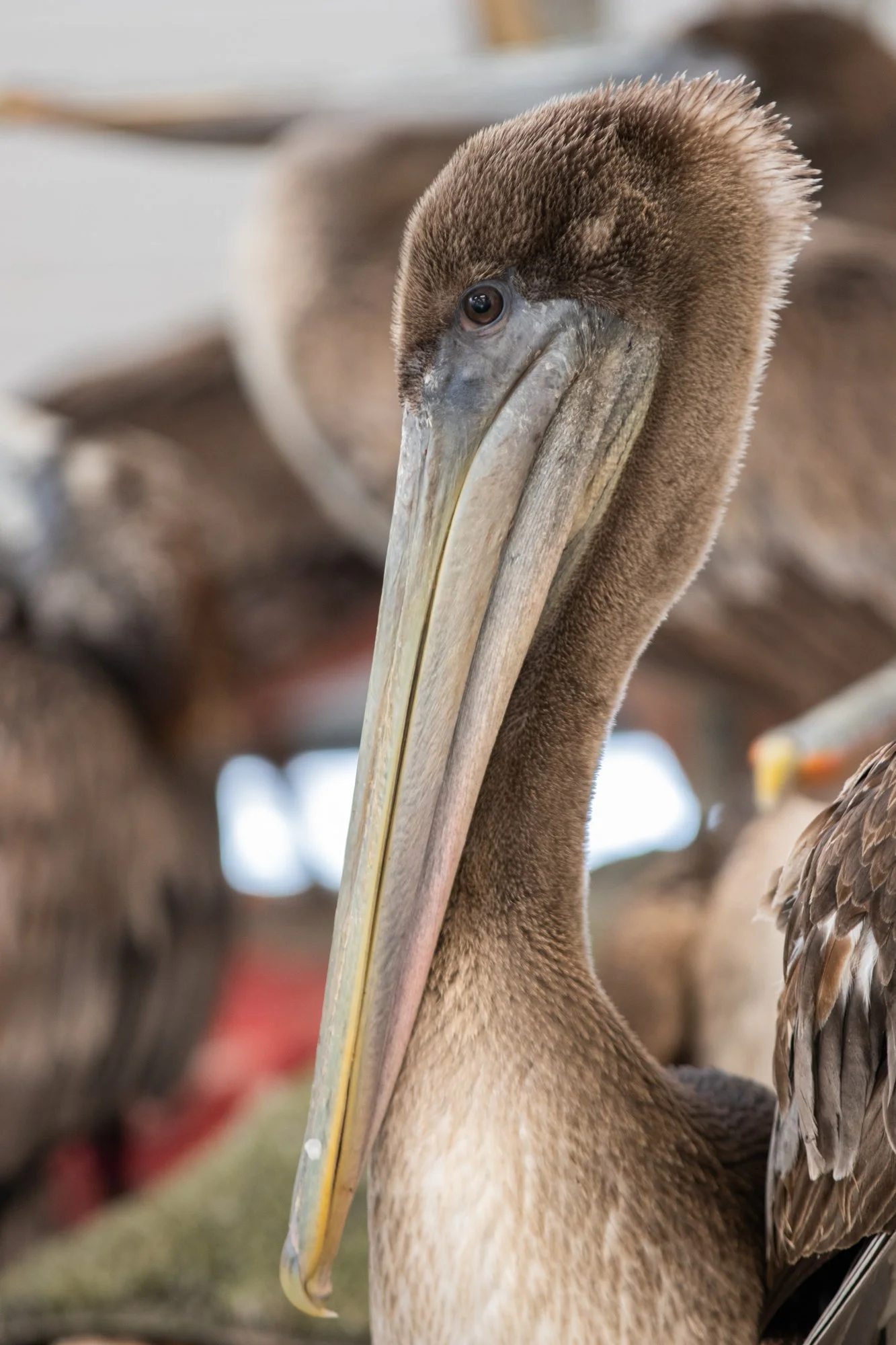
PELICAN CRISIS 2022
On Saturday, May 14, Santa Barbara Wildlife Care Network began receiving an unusually large influx of brown pelican patients. In just two weeks, more than 230 brown pelicans were rescued and brought to SBWCN to receive care. Most of these birds arrived severely emaciated, dehydrated, and hypothermic, with many more reports of deceased pelicans being found all over Santa Barbara and Ventura Counties.
The SBWCN team went into emergency response mode to accommodate the increasing number of sick pelicans. The Helpline team responded to as many calls as possible. Our team of rescuers transported these patients to our Wildlife Hospital in Goleta. Animal care staff and volunteers worked long hours to provide fluids, food, and medication. And many more wildlife rehabilitation centers along the California coast experienced the same thing. California Department of Fish and Wildlife concluded the cause of this event was starvation.
Thanks to the donations, volunteer time, and support from our community, these pelicans were able to receive the immediate, expert care they needed. After weeks of hard work responding to this event, the number of new rescues slowed down and most pelicans have now been released back into the wild.
Your ongoing support has allowed us to provide the food, fluids, and medications these birds needed to make a full recovery.
WAYS TO SUPPORT
-

DONATE
Your gifts directly support the care and rehabilitation of these birds. If you’d like to help with supplies, shop the Amazon Wishlist.
-

VOLUNTEER
If you’d like to become a regular volunteer with SBWCN, please fill out our online application.
-

REPORT A SICK BIRD
If you see a sick or injured pelican, please call our Helpline and leave a detailed message with the exact location of the bird: (805) 681-1080.
PELICAN CRISIS FAQ
-
On Saturday, May 14, Santa Barbara Wildlife Care Network began experiencing an unusually large influx of sick brown pelican patients. Most of these birds arrived severely emaciated, weak, hypothermic, and unable to fly, with similar reports coming in from up and down the California coast.
-
California Department of Fish and Wildlife concluded the cause of this event was starvation. While testing has ruled out disease and toxins (i.e. avian influenza and Domoic acid poisoning), they are continuing to investigate the exact reason for the widespread starvation.
-
SBWCN received sick pelicans from all over Santa Barbara and Ventura Counties. Other wildlife rehabilitation centers in Southern California are also reporting a similar influx of these pelicans. Many pelicans are being found in unusual places, including roadways, fresh water pools, and citizens’ backyards.
-
Once they arrive at SBWCN, all pelicans receive an initial exam. The team checks their weight, temperature, hydration levels, body condition, and alertness, as well as any obvious injuries and ailments.
These patients’ treatment plans include:
Fluids (for hydration)
Food (including herring, smelt, sardines, etc.)
Warmth (to stabilize their temperature)
Medications (antibiotics, opioids, etc.)
Supportive care (bandage changes, etc.)
-
Yes – the majority of patients responded very well to treatment. Most have made a full recovery and were released back into the wild.
-
Donations are vital to continue purchasing medication, fluids, fish, crates, and medical supplies, as well as cover the costs of extra staffing and transportation.
-
If you see a pelican that appears lethargic, disoriented, or is in an unusual location, please call our Helpline and leave a detailed message with the location of the bird: 805-681-1080
Please do not handle or touch the bird.












